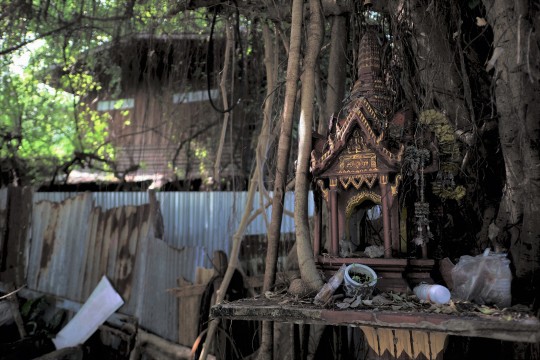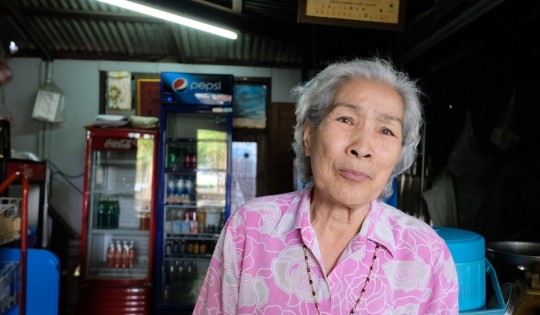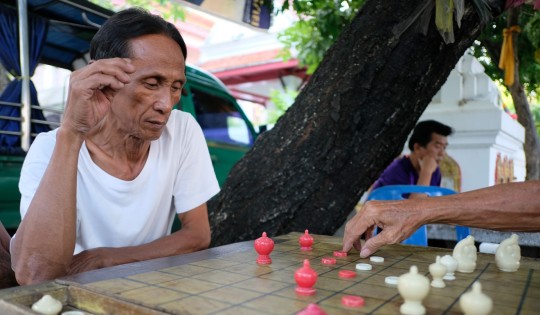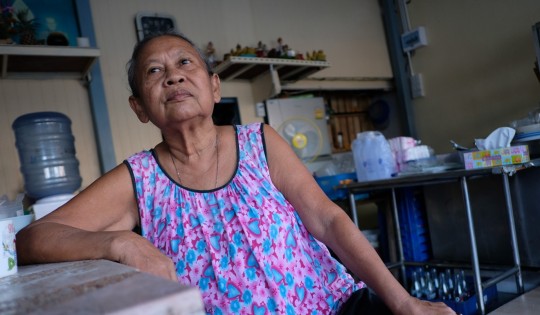#This is terrifying because there are only a few recent retirees left who knew the gold standard of Boeing from the old days.
Text
#They're saying it was a self-inflicted wound. Even if it was ...Boeing caused it. Witnesses and whistleblowers are intimidated and stalked#This is terrifying because there are only a few recent retirees left who knew the gold standard of Boeing from the old days.#those guys are old pacific northwest dads who definitely don't want to die or get caught up in this. They're being silenced.#I will not be flying until something changes.#because this means the planes are really and truly fucked.
20 notes
·
View notes
Text
A Fresh Start
This was supposed to be part of a longer work that I won't describe because maybe it will eventually get written. But I'm testing the waters of this fandom again, working on various WIPs (AU story We Belong will be completed!!) and felt like I should just get this out there. It initially had an edgier title but I got distracted and forgot it.
Content warning for brief violence.
Find it on AO3 here. My epic take on the Quinn/SW story is here.
================================================
Two heavily bearded prisoners, one reeking of piss and shit, the other a bit better kept, were dragged before the magister’s desk.
He was a civilian advocate, a military retiree compelled to return when asked to serve in this role. His sole job: to pass judgment on errant military personnel. On occasion, his rulings were dictated from on high. He did both with all the brains and heart he could stomach.
And he did so from behind a simple wooden table behind a meter-high plasteel panel in a cold, steel gray room.
Today, it was two officers. He hated this part of the job. Because either they were guilty and a shame upon the service, or they were innocent and being framed to protect someone higher up who actually was guilty. So still, a shame upon the service.
Today, he had one of each. The first case was open and shut: A young lieutenant had gotten drunk and forced himself upon a barmaid. Normally, such a thing would be overlooked, since the young woman had not been severely injured, except she was the niece of a prominent Sith family. Human, but still Sith. He’d appealed, saying his drink had been spiked by a spiteful colleague. There was no way to prove it.
“Gorbinn, step forward.” The young man was clearly too weak to escape the guards holding him, so they dragged him to the front of the table. “You must stand to hear your fate, son.” The guards stood him up and then backed away.
“Jamith Gorbinn. The Military High Tribunal has reviewed your appeal. Your appeal has been denied. The sentence of death stands. It will be carried out immediately.”
The young man opened his mouth to protest, but one of the guards pointed his blaster at his head and fired before he could say anything. His body slammed forward to the duracrete floor and a pool of blood began to form.
A doctor walked slowly toward him, gave him a quick scan, and pronounced him dead.
The other officer somehow managed to pull himself up and the guards released their hold on him. He stayed in place, but stood up fully and attempted to straighten the dirty prison uniform he’d worn for the past three weeks. There was nothing he could do about the blood spatter on his left side. He assumed the magister would understand.
He’d last been given a clean uniform for his appeal hearing, brief and bewildering as it had been. He knew the process – all the arguments were laid out before the military court without the accused present, unlike the grueling court martial he’d been through the month before. Then the accused was brought in for a final statement, and questions if necessary. There had been none, but the officer had been certain that some of them looked upon him with pity and not scorn. It had been his only hope for these past weeks that somehow, his life might be spared.
Two young enlisted troops ran forward with a tarp and rolled the body onto it. The two guards who had escorted Gorbinn in lifted the body and dropped it onto the tarp, rolled it up and carried him away. One of the enlisted men went to the back of the room, just beyond the officer’s sight, and came back with a vibromop and a towel, and quickly removed any evidence of the justice that had just taken place.
Now it was obvious what the plasteel panel was for.
“Next. Prisoner Dorn-37652, step forward.”
Malavai Quinn, 27 years old, had been stripped of his captaincy and left without rank or even a name for the past three months since he’d taken it upon himself to countermand a moff’s misguided and cowardly orders. Reversing the retreat had saved hundreds of thousands of Imperial troops and hundreds of ships. It had been a glorious victory for the Empire, but it had come at a severe price to him personally.
He hadn’t regretted it until the court martial, when one of the judges remarked he had known Quinn’s father, who had died months earlier at Rhen Var, in service to Darth Mekhis. “You bring great shame upon a glorious military family,” she spat.
“I would not change what I have done, your honor. My actions were for the good of the Empire. We won the day and thous…”
“You disobeyed orders. There is no excuse.”
Quinn bowed his head and remained silent. The proceedings stretched on for three days, rather long for an Imperial court martial.
==
The young man bore a strong resemblance to his father, who the judge had researched while awaiting the decision he was to present as his own.
“Malavai Quinn. I have reviewed your appeal. The appeal of your death sentence has been approved, and the Military High Tribunal concurs. You will be returned to custody until such time as your final sentence has been determined and you are released.”
Quinn felt his stomach fall and then return. “Thank you, your honor. Sir.”
The judge rose slowly, picked up his datapad, and turned to leave. Quinn stood still, waiting for a formal dismissal.
“For the record, son, my granddaughter was at Druckenwell. She’s at home with her son now. I had no part in this decision, but I’m glad of it,” he said, turning his head back toward the defendant.
Quinn stood at attention and then nodded. “Sir, I may no longer be in service, but I am grateful nonetheless.” The two guards motioned toward Quinn, who followed them back.
As he retreated, Quinn figured he’d be dishonorably discharged, banished from Dromund Kaas and made to feel lucky he’d been left alive. There was nothing remaining for him here anyway. His mother had disowned him, whether she was still grieving for his father or worried about his sisters’ career and marriage chances, she hadn’t said. She was incensed he had refused an offer to simply leave the service without an official trial as part of a plea bargain. “You’re just being difficult, Malavai. You’re always difficult. You don’t think of anyone but yourself.”
“I’m thinking of the truth, Mother. It needs to be heard. Moff Broysc was …”
“I don’t care. Why should I? You don’t care. About anyone except yourself and your impossible standards. You’re worse than your father, and he’s a full colonel.” She brought a handkerchief to her eyes and mumbled into the cloth, “He was a full colonel.”
Quinn could never bear seeing her cry. “Mother, I’m sorry. I have to see this through.”
“Then you see it through alone. I’m done with you, Malavai. I have no need of a son who gives no thought to his family’s shame.”
And she cut the transmission. As a prisoner, Quinn had no way of contacting her, so he begged his advocate, who said they’d been unsuccessful at reaching her.
So this was it. Quinn followed the guards back to his cell. Two hours later, a fresh prison uniform was delivered and Quinn was ordered to the showers to clean up and shave.
He was escorted into a small workroom with a tabletop holo. A few minutes later, a large figure appeared and addressed him as “lieutenant.”
Quinn bowed, assuming he was addressing a Sith of some stature by the man’s dress and battle mask, and the high-end computer terminals behind him. “My lord, I have been stripped of my rank as a …”
“I know why you’re in there, Malavai Quinn. My name is Darth Baras. I have asked my master, Darth Vengean of the Dark Council, to spare your life in exchange for a new start with the military. You are to be transferred to Balmorra, where you will serve as my eyes and ears.
“Trust me, Quinn. Your talents will not be wasted.”
Quinn wasn’t sure what to say. He’d just been granted a new beginning. A humbling one, being returned to the rank of lieutenant when he was all but assured of a promotion to major before Druckenwell. And exiled to Balmorra, still a fresh warzone. But he was alive. And he was still Malavai Quinn.
He stood at attention, then bowed his head in deference. “Thank you my lord. I shall serve you faithfully for as long as I am required.”
The impassive metal face gave Quinn no clues as to the man behind it. It wasn’t even particularly frightening, like many Sith masks. His round figure likely meant the man was no fighter, or at least, had not been one recently.
“You will receive your official orders and a new uniform shortly. The shuttle to your new post leaves in two hours. You had best be on it. I will contact you again when I receive word you have arrived. Baras out.”
The holo went dark. Quinn was both elated and terrified. He was back in the service, his mind already calculating his newly possible futures: put on hold for a few months on Balmorra, a year at most, able to transfer back to a more relevant assignment after that. He’d be spending this time serving a Sith lord, a darth no less. As his father had done.
And look what that had gotten the man. Quinn vowed to do his father one better. Even disowned, he would make his family proud.
#swtor#malavai quinn#swtor fanfiction#sith warrior#eventually anyway#be kind and reblog#how tf does anyone see anything on this site#thank you for all your support over the years#fandom old lady
18 notes
·
View notes
Text
Superstitious Thais fear old empty houses

In #superstitious #Thailand, old empty houses become places to be feared – full of #ghosts and #demons
Among residents of an old shanty town in an outlying area of Bangkok, Thailand, there is talk of a haunted house.
It isn’t hard to find, beside a small stream blackened with putrid effluents and flanked by a concrete pathway. The weather-beaten wooden dwelling looms behind a corrugated aluminium fence. Even at a glance it looks vaguely sinister.
Made from planks, the small, rectangular two-storey structure has pairs of thin horizontal windows on the front and back of its upper floor. They resemble evil eyes squinting menacingly.
The home is shaded by two large ficus trees, from whose tangled branches cascade thick curtains of aerial roots that cloak it in a gloomy, woody veil.
Fig trees like these are believed to be inhabited by arboreal spirits. Standing by one of them is a hand-carved shrine with votive offerings.

It isn’t the spirits of the trees that worry some people in the neighbourhood, though. It’s the suspected presence of ghosts in the house.
“It’s a deserted place and looks scary,” says Suwanna Sukwiboon, 75, an impish Thai-Chinese grandmother who lives nearby with her husband, Tanapon, a retired car salesman. “I’m terrified of ghosts. If I see so much as a shadow, I’ll flee,” she adds with a chuckle.
The couple have fortified their home against baleful influences with an eclectic collection of religious objects. Laminated pictures of venerated Buddhist monks hang from their anteroom’s ceiling.
On one wall-mounted shelf stand porcelain figurines of Chinese deities. On another are effigies of Hindu gods and goddesses.
“After dark, children don’t go near that house,” Suwanna says. “Nor do I.”
The abandoned dwelling, locals theorise, is perhaps haunted by kuman thong – childlike apparitions conjured up by witch doctors from aborted foetuses or stillborn babies. Or, perhaps, it is home to a phi am, a female demon who paralyses people in their sleep by squatting on them.
“I woke up one night to find a shadowy figure pinning me down,” recalls Robiyan Mongpra, a clothing store manager. “I tried to push it off, but I couldn’t move. I cried out and then it left me.”

Suwanna Sukwiboon, an elderly Thai-Chinese woman, professes to be terrified of ghosts. Photo: SCMP
Sleep paralysis, which involves a momentary inability to move or speak while falling asleep or waking up, is a well-attested natural phenomenon.
Yet for people in Thailand, where a dread of malevolent spirits runs deep, it is widely assumed to have supernatural causes.
The spooky house has even affected nearby rental prices in this old neighbourhood in Thonburi, a residential area of Bangkok.
“I’ve found a place cheaply because there’s haunted house in the street,” says Rattapoom Kotchapong, a schoolteacher.

A man passing by on a motorcycle stops to donate to a Buddhist temple by a plastic automaton skeleton. A dread of malevolent spirits runs deep in Thailand. Photo: SCMP
Uninhabited buildings and ones in which people have died in grisly ways routinely become objects of fear in Thailand.
“With rundown and abandoned buildings, the idea of ghosts creeps in,” says Andrew Alan Johnson, an anthropologist at Cornell University in the US, who studies Thai beliefs about ghosts and haunted buildings.
“Part of the reason is the fears people project onto such places,” Johnson explains. “The supernatural world has a particular role in Thailand because it allows for otherworldly speculation about everyday things.”
Not everyone is convinced the old house is haunted.
One doubter is Namon Kimawong. A middle-aged woman who sells home-cooked food to passers-by from her rickety shack’s modest kitchen, Namon has lived next door to the old house for decades. It belongs to an unmarried elderly man who, she says, had to move out after falling gravely ill.
“I’ve never seen ghosts in there,” she insists. “You can stay here overnight and see for yourself.”
Rowdy ghosts, it turns out, are far less common around the old neighbourhood than they used to be – or so several locals say. It was here in Thonburi, a short-lived capital city that is now part of a sprawling metropolis, that the son of an immigrant Chinese trader was crowned king after helping liberate Siam from Burmese invaders as a warrior.
King Taksin moved his capital here from Ayutthaya, the badly ravaged old capital, in 1767. Taksin reigned until 1782, when he was executed by some of his generals for claiming to be a living Buddha.
His successor, the founder of the current Chakri dynasty, relocated the capital to Bangkok, on the other side of the meandering Chao Phraya River.
Taksin’s cremated ashes were buried at a Buddhist temple in Thonburi, within easy walking distance of the spooky house.

View over Chao Phraya river in Bangkok. Photo: Alamy
The historic neighbourhood is criss-crossed by scenic canals plied by long-tail motorboats. Parts of the area, until recently, still had a semirural feel with shady copses of betel nut and coconut trees. Yet where patches of greenery once gladdened the eye, now massive new flat blocks dominate the landscape.
A few years ago, one of Bangkok’s two elevated light-rail lines was extended into this area, making to-and-fro commutes into the city faster and more convenient. Crowds of new residents followed.
“In the past, there were lots of ghosts here but few people,” recalls Tanapon Sukwiboon, 75, who has lived in the community most of his life. “Now there are lots of people but few ghosts. Ghosts don’t like being around too many people.”
In nearby woods at night, there were once reported sightings of a pret, a giant skeletal apparition with stick-like limbs and a lolling tongue. The trees are long gone and the spectre hasn’t been seen for years.
“The Skytrain came, the ghosts went,” says Napporn Ruangjaroonwattana, a taxi driver.
A local who is well placed to testify about ghosts is Mongkhon Tekket. A sinewy ethnic Chinese man with wry wit, Mongkhon is an undertaker at the crematorium of a century-old temple where he plays chess with retirees between funerals.

Mongkhon Tekket, an ethnic Chinese man, is an undertaker at a crematorium but says he has yet to see any ghosts. Photo: SCMP
“I’ve seen plenty of dead bodies over the years. But I’ve yet to see a ghost,” Mongkhon says. “The dead lie peacefully and never say a word. None of them have come back to haunt me.” Mongkhon believes in ghosts but assumes only people with a sixth sense can see them.
Anong Sukjam claims to have a sixth sense that allows her to see ghosts. She works as a fortune-teller, with hair dyed carrot-red and hands adorned with bijou jewellery.
“I’ve seen ghosts many times. They’ve never done me any harm,” Anong says, while stroking her pet dog, a shih-tzu. “I have kuman thong living in my house. Sometimes I hear them playing.”

Anong Sukjam, a fortune-teller, claims to have a sixth sense that allows her to see ghosts. Photo: SCMP
The fortune-teller plies her trade at the shrine of Mae Nak in another old community across town in eastern Bangkok. The shrine is devoted to Thailand’s most famous ghost: the spirit of a pregnant young woman whose soldier husband went off to war.
She died in childbirth while he was away, but she kept on waiting faithfully for him. Soon after he returned home, the story goes, the husband realised his wife was no longer a flesh-and-blood woman but a spectral creature in human form. He fled in terror.
Distraught, Mae Nak began tormenting local people until an exorcist placated her through magic rituals.
“We’ve never seen her spirit, but we know she’s here,” says Phra Somkiet Chantaseelo, a Buddhist monk who lives at Maha But Temple, where the Mae Nak shrine is housed.
The shrine is bedecked by dolled-up effigies, oil paintings and numerous figurines of Mae Nak. All day long people flock to her, pleading for good luck, better health or more money. “Even if you can’t see her, she can still have her influence felt,” the monk says.
In this part of Bangkok, too, helter-skelter urban development – which has transformed a once largely rustic area – has driven ghosts away, locals say.

Suphab Chanjaroen claims to have been visited by the ghost of Mae Nak. Photo: SCMP
Mae Nak hasn’t gone completely AWOL, though, according to Suphab Chanjaroen, an elderly woman who sells food and refreshments beside souvenir stalls at the Buddhist temple’s entrance.
Now 70, Suphab has lived here since she was a young girl. Decades ago, her late brother, who was a monk in the temple, fashioned a still-popular effigy of Mae Nak from plaster into which he had mixed soil collected from seven burial grounds for extra occult potency.
A few years ago, Suphab was sitting outside her house when, she says, a comely young woman in an old-fashioned dress approached her. “She stood right there silently,” Suphab recalls, pointing at the spot.
“She was so beautiful,” the elderly woman adds. “I knew it was Mae Nak immediately. She came to see me. She smiled sweetly, then she turned around and disappeared.” - SCMP
–
Stay up to date with BangkokJack on Twitter, Instagram, & Reddit. Or join the free mailing list (top right)
Please help us continue to bring the REAL NEWS - PayPal
Read the full article
0 notes